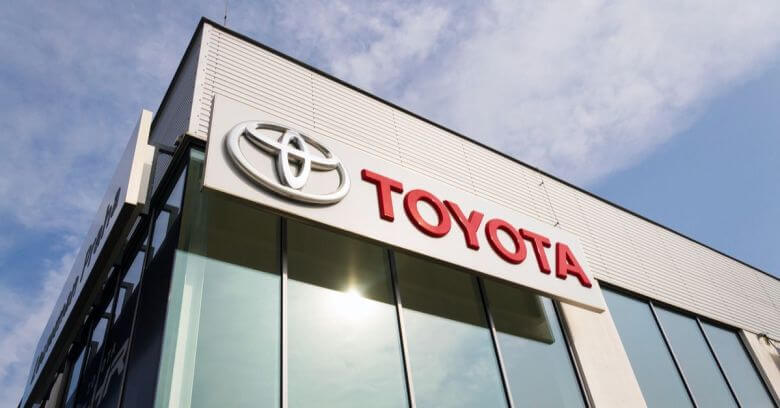Toyota Mission and Vision Statement Analysis

Toyota mission statement is “To attract and attain customers with high-valued products and services and the most satisfying ownership experience in America.” This statement reveals what the company holds dear in all its operations. It underscores the place of its customers in all its operations, and that all its efforts target to leave them satisfied and marvelled by its products. The components that emerge from this mission statement include:
- Improvement of life. Toyota stresses designing automobiles that make a difference in society to satisfy the needs of this first component in its mission statement. It does this by tailoring its cars to the essential needs of people in the present communities by regions and other preferences. In fact, the company has gone a step further to offer its client customer customized products at request, and this has given the company a unique reputation in the sector. It’s all Toyota vehicles section provides broader insights into what is in store for any customer at Toyota.
- Exceeding expectations. Toyota has remained at the top in this industry due to a specific reason – offering nothing that falls below the global quality standards of automobiles. By doing so, the company has distinguished itself as a dependable manufacturer of motor vehicles across the globe. The perseverance it has shown in constantly improving the quality of the products it offers its clientele is an indication of its desire to always be the best.
- Improving affordability. In the last component of its mission statement, Toyota recognizes that customer experience demands more than quality. It explains why the company is one of the best when it comes to the competitiveness of the automobile prices in the market.
Introduction
The automobile industry is perhaps one of the most competitive sectors in the contemporary era for any company to exert supremacy in. Despite the fluidity of the sector, Toyota is one of the few and rare companies that has remained consistently at the top leading the rest with its dynamic and breathtaking ingenuity in the automobile productions.
Its dominance as not in any way been by chance, it all comes down to the mission and vision statements that have been gradually adapted to the changing landscape and purpose of the company over the years. In fact, these have strategically positioned the firm as a progressive and customer-centred entity ever since the 1920s leading to its credibility and popularity in the sector. Toyota vision statement agrees with the classic definition of the vision of a company, which discloses the future ambitions a particular firm longs to achieve in the long run.
In this case, the vision statement of the company lays emphasis on the coveted status and admirable image it seeks to create in the automobile industry. The mission statement of a company is a critical aspect that brings out the processes that the establishment wishes to use to progress towards its vision. Toyota mission statement highlights its strategy to captivate customers with top quality products and services as a strategy for achieving its vision.
The core values of a company are often indispensable when it comes to the success of both the mission and the vision statements in a company. Ideally, they are the guidelines or moral rules that keeps everything in motion, and most importantly in the right direction.
Toyota boasts of strong core values that bind and motivates its workforce and other stakeholders to remain committed to the mission and vision statements of the company.
Vision Statement
Toyota vision statement is “To be the most successful and respected car company in America.” The statement is a reflection of the status the company has been working for ever since its foundation. It speaks of how the company looks to exploit its resources and leadership position to leave nothing to chance in ensuring it stands as one of the best car manufacturing company. The following elements relate to this vision statement:
- Be the most successful. Within this component, Toyota reveals that the company is all about breakthroughs. The emphasis the firm places when it comes to overcoming any challenges in the sector has validated its desire to be the best. Toyota has made remarkable progress that evidences its continued determination to satisfy this component over the decades. In fact, the wide range of success stories reveals just how far this company has come and its projected destination of accomplishment.
- Command respect. While providing the most creatively designed vehicles is a mark of success, these qualities are everything Toyota needs to grab its fair share of respect in motor car manufacturing. The company found a secret in doing so by leveraging on the aesthetic and performance needs of its client base, and this has seen it rise as the most respectable player in this niche. In fact, the fact that it does not limit its reach to vehicles talks volumes about the company. For instance, its going beyond vehicles reveals the extent to which it goes to interact and leave an impact on society.
- Market domination. Toyota is very critical when it comes to influencing the market through its cutting-edge automobile designs. It has continued to do this for decades explaining why it is being emulated by other players, while at the same time running away with the title of ‘most dependable’ brand among the customers.
Core Values
Toyota core values comprise “Integrity, customer satisfaction, quality and safety.” The values outline the essential elements that govern the smooth operations of the company and contribute to its success towards its goals and objectives.
- Integrity. In this value, the company lays an emphasis remaining consistent and true to the standards and relational attributes of the company. Toyota does this through its interactive approaches and staff friendly environment.
- Customer-satisfaction. It is obvious that Toyota is all about people. Its passion for people underscores that they are the company’s first priority, and that is the reason all products are designed to meet their expectations.
- Quality and safety. Toyota acknowledges that it draws its reputation from offering products that exceed the expectations of the clients. In fact, this is something that drives all stakeholders to remain perfect in all operations.
Slogan
Toyota slogan is: Let’s Go Places
References
- Blodgett, M. S., Dumas, C., & Zanzi, A. (2011). Emerging trends in global ethics: A comparative study of US and international family business values. Journal of Business Ethics, 99(1), 29-38.
- Candemir, A., & Zalluhoğlu, A. E. (2013). Exploring the innovativeness and market orientation through mission and vision statements: the case of Istanbul stock exchange companies. Procedia-Social and Behavioral Sciences, 99, 619-628.
- Chhotray, S., Sivertsson, O., & Tell, J. (2018). The roles of leadership, vision, and empowerment in born global companies. Journal of International Entrepreneurship, 16(1), 38-57.
- Dahlgaard-Park, S. M. (2012). Core values–the entrance to human satisfaction and commitment. Total Quality Management & Business Excellence, 23(2), 125-140.
- Frandsen, F., & Johansen, W. (2011). Rhetoric, climate change, and corporate identity management. Management Communication Quarterly, 25(3), 511-530.
- Green, T. J. (2012). TQM and organisational culture: how do they link?. Total Quality Management & Business Excellence, 23(2), 141-157.
- Harrington, H. J. (2016). Vision/Goals. The Innovation Tools Handbook, Volume 1: Organizational and Operational Tools, Methods, and Techniques that Every Innovator Must Know, 391.
- Kennedy, E., & Guzmán, F. (2016). Co-creation of brand identities: consumer and industry influence and motivations. Journal of Consumer Marketing, 33(5), 313-323.
- Krüger, W. (2010). Implementation: The core task of change management. Strategy—process, content, context, 212-224.
- Kumar, N., & Sharma, D. D. (2018). The role of organisational culture in the internationalisation of new ventures. International Marketing Review, 35(5), 806-832.
- Toyota – About.
- Turner, H. A., Clack, G., & Roberts, G. (2017). Labour relations in the motor industry: A study of industrial unrest and an international comparison. Routledge.
- Wehrmeyer, W. (2017). Strategic issues. In Greener Marketing (pp. 95-110). Routledge.


